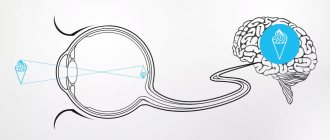The reason may be an excessive load on the nervous system, which is simply not able to process everything. It is important that a person has someone to share his problem of gender independence with. Health should come first!
For some, loud screaming or crying helps, for others, long walks or sleep. If after this the patient begins to feel better, then full treatment is not required. If your health only worsens, this indicates that you need to see a doctor to solve psychological problems. The advice to you from experts is to undergo a course of treatment at the center.
Causes of a nervous breakdown
A breakdown is a defensive reaction to the fact that a person is overloaded and needs emergency help due to an external factor. A doctor should consult; the syndrome is increasingly being called acute.
The reasons are stress that regularly affects our organs or short-term shock.
Everyone falls into one group or another. People are often prone to:
- are constantly being thinned out for events that have happened to them or are about to happen in the future;
- increased desire to work;
- cannot improve relationships in the family or at work;
- with low self-esteem;
- cancer patients;
- those who are facing serious changes;
- young parents who just had children;
- experienced the loss of a loved one;
- failures in personal relationships or relationships with parents;
- lack of money for a normal existence;
- job loss;
- responsibility that cannot be handled;
- anxiety.
A breakdown begins due to negative events, but problems can begin after major events - a wedding, a move, a new job, the birth of a first child.
Men have varying degrees of stress resistance. It’s easy for one to survive life’s problems, while the other is overwhelmed by their appearance and begins to show aggression.
What causes a nervous breakdown and how to spot it?
Breakdowns most often occur after negative life situations. Anything that undermines your mental strength can lead to shock, but most often these are shocks such as:
- Death of a relative or friend.
- Dismissal.
- Divorce, infidelity, betrayal.
- Problems with your own health or those of loved ones.
- Great financial difficulties, loss of a large sum of money.
- Threat to life.
These are just some of the problems that create a stressful background. If a person does not see a way out or is isolated and cannot ask for help, a breakdown occurs.
In addition to personal problems, external reasons cannot be ruled out:
- Economic and political crises.
This directly affects your income, mood, freedom and the happiness of those around you. And it can become an impetus for constant worries. - Coronavirus.
In addition to increasing mortality, the disease brings more and more new consequences for the health of mankind, including psychological ones. The amount of anxiety and stress increases.
The reason varies from person to person. Very often there are situations where one event overlaps with another or a long stressful history, for example, caring for a sick relative.
However, if you notice that you are constantly stressed or have other symptoms every day, then you should start solving the problem.
Signs and symptoms of a nervous breakdown
Symptoms and signs of a nervous breakdown, depending on the type of disorder, have common symptoms that are characteristic of the types of breakdowns. Among the consequences:
- lack of appetite, sleep, energy;
- constant irritability, anxiety, nervousness;
- the appearance of negative thoughts;
- fear of tomorrow;
- change in performance;
- constant desire to sleep;
- poor concentration;
- memory problems;
- negative thoughts;
- manifestation of apathy;
- headache;
- pressure;
- changes in mood, anxiety;
- panic attacks, fatigue;
- problems with the cardiovascular system;
- phobias.
A person’s behavior changes greatly, but the disease affects all organs. The disease is accompanied by symptoms: headache, shortness of breath, heart problems, poor appetite, blood pressure fluctuations, and mental changes. It is advisable to contact a psychologist.
Astheno-neurotic syndrome
Astheno-neurotic syndrome is manifested by chronic fatigue, apathy, increased fatigue and irritability. This disease is complemented by loss of appetite and insomnia. Physical signs are associated with apparent heart disease. It may seem to a person that he has a slow heartbeat, or vice versa – tachycardia. No changes are observed on the cardiogram. However, the patient feels pain in the heart muscle. Stomach problems and migraines are also possible. Diagnostics involves interviewing and examining a person. An examination is being carried out for a viral infection. The prognosis is favorable, especially if the person additionally attends art therapy sessions. Drawing has a relaxing effect on the psyche, negative thoughts dissipate, and the patient feels harmony.
Diagnosis of nervous breakdowns
Development occurs at the moment when the patient is simply no longer able to bear the load. The psyche simply becomes uncomfortable working in the same conditions; it asks for possible methods of help. And a person tolerates everything that happens to him, although the state has already reached its peak. Emotions are overwhelming, anything can be expected at any moment. Explosions occur, although everything could be fine for many years. But a critical moment has begun, everything needs to be corrected so that your organs no longer experience this feeling.
It’s all because of the reason that was the beginning of the occurrence. The tank was filling very slowly, but surely, and at one point it simply exploded from overfilling and would not be able to work.
There are two models of behavior in a difficult situation:
- Explode for any reason. At the same time, the patient splashes out his emotions and shows indignation. Strong scandals and conflict situations are characteristic of this type and the reasons for divorce.
- Accumulate all the grievances in yourself, like in a big vessel. He endures all insults until the last moment. Apathy towards everything, a depressive state, and a reluctance to communicate with anyone may begin. A mental problem begins to appear, if of course it was not there before.
But how can we avoid the danger of overfilling that same vessel and cope with the consequences? You can avoid this by becoming aware of your feelings, emotions, experiencing and accepting them.
Prevention and risk reduction
It is impossible to prevent emotional burnout, but timely treatment and support from loved ones will help avoid complications. It is worth working on yourself and increasing your self-esteem. This will allow you to become less susceptible to negativity and acquire an optimistic outlook on things. Relatives and friends will help in dealing with stress in times of crisis. It is better to start treatment in the early stages. Antidepressants are used for this. The appointment should be monitored by a psychotherapist. Some antidepressants come with serious side effects. Taking into account the patient’s condition, the doctor will prescribe medications and dosage. It is advisable to combine drug therapy with consultations with a psychologist or psychiatrist. In severe cases, hospitalization is required. This approach is used when a person is dangerous to himself or others. In practice, partial hospitalization is also used.
Stick to your chosen plan and do not miss psychotherapy sessions. Feeling better is not a reason to stop taking medications. Abruptly stopping medications will cause symptoms similar to withdrawal symptoms. Do not use alcohol to improve your mood, which will be temporary. Then there will be a sharp deterioration. It is prohibited to take additional medications without the knowledge of your doctor. This may cause dangerous interactions. Don't ignore warning signs. It is advisable to obtain from a therapist a detailed plan of action in case of deterioration in health and to familiarize your relatives with it. Tell your doctor if your symptoms change so that your treatment can be adjusted accordingly. Jogging, race walking and swimming will help strengthen your body. Proper nutrition and normal sleep patterns will speed up the restoration of internal balance.
Author of the article: Yakovlev Evgeniy Anatolyevich
Narcologist, Candidate of Medical Sciences.
In a hospital or at home?
It is easier to prevent a breakdown than to treat it. During a breakdown, not everyone knows how to calm a person down. Just a few years ago, to calm the patient, they poured a bucket of cold water on him, if, of course, there was cold water nearby. If this does not help, you need to contact an ambulance.
Screaming will not help; a person is not able to control his actions. A raised voice can only make things worse, which should not be allowed.
Everyone decides for themselves where it is better to treat the disease - in a hospital or at home. If, for example, the breakdown was caused by the situation in the family, then it would be logical to send the patient to the hospital. The psyche may simply not cope if this happens again.
In other situations, having relatives nearby can have a positive effect on the patient’s well-being. Any drug is prescribed after a comprehensive examination. The patient must be under the supervision of a doctor; many drugs can be addictive. After treatment, it takes another month to recover.
But vice versa, it is better to treat a nervous breakdown at home in women and men. We need to understand what led to this state. If, for example, constant tension arises at work, you need to take a vacation or quit altogether, there is nothing more valuable than health. If the cause is overwork, you need to build a more gentle schedule for yourself, which will include 8 hours of sleep, a walk in the fresh air during the day, and proper nutrition.
When treating at home, you need to consult with a therapist to draw up an action plan. Treatment within the walls of the home is aimed at relaxation and distracting the patient from the problem. The method is safe for life and health.
Causes of neurotic disorders
Doctors have different opinions regarding the catalyst for neuroses. Some believe that this condition develops due to a genetic predisposition, others – childhood psychological trauma. Children's psyche is weak, their memory is tenacious, any serious stress persists for a long time. Most of the complexes that a person suffers from in adulthood arose in childhood. Women are more susceptible to the disease.
Other causes of neurotic disorders:
- unfavorable environment, poor living conditions;
- prolonged physical overload in combination with stress;
- exhaustion of the nervous system;
- too busy work schedule;
- lack of proper rest;
- alcohol and drug abuse.
Neurotic dysfunctions occur when the body is exhausted.
Consequences
The emotional state has a direct connection with the physical state. If a nervous breakdown has been detected, symptoms begin to appear: problems with the heart, problems with the digestive system, dizziness. A breakdown may begin in a patient who has attempted to commit suicide.
If the problem is not diagnosed, it begins to accumulate like a snow globe. The patient begins to have communication problems, becomes more hot-tempered, irritable, and his psychological state worsens.
A breakdown leads to drug addiction or taking excessive amounts of alcohol, and promiscuous sexual relations. The search begins for a method of discharge, getting rid of all the negativity that has accumulated in the form of an internal factor. It is necessary to get help from a psychotherapist in time.
What is a nervous breakdown?
In general, neurotic spectrum disorders, according to WHO, are common in the world among 10–20% of city residents. But the real number could be much higher because people rarely seek help.
It is important to understand that a breakdown is not a diagnosis itself, but a consequence of simultaneously accumulated negative emotions. This is the critical point of a certain mental disorder. A nervous breakdown is most often accompanied by long-term elements of depression and neurosis.
Psychological shock or breakdown as a reaction of the body is of two types:
- Sympathetic or active.
An excessive amount of adrenaline is released, which causes the pulse and breathing to increase and the pupils to dilate. The body temporarily masks the pain, strength increases, and you are ready for anything. - Parasympathetic or passive.
Acetylcholine is produced, you feel weak and nauseous, and your heart rate decreases. Even temporary loss of consciousness is possible.
Scientists believe that these scenarios are our evolutionary advantage, helping humans survive in dangerous situations. In the first type - the “fight or flight” reaction, in the second - “play dead”.
Specifics of treatment
Nervous breakdowns do not appear out of nowhere. This is a long-term disease that has not been treated for years, or prolonged stress that the patient has experienced. To get rid of an ordinary nervous breakdown, you need to reconsider your life, get rid of the cause - treat the underlying disease, limit your communication with those who bring you to such a state.
This lengthy process can take a month or even more. There are medications that will help the patient during periods of treatment. Those who are treated at home without a doctor’s prescription cannot even imagine the harm they are causing to their body.
The disorder appears for various reasons; the treatment of a nervous breakdown, especially in women, must be approached in a comprehensive manner.
Symptoms of neurotic disorders
Neurotic dysfunctions are characterized by instability of mood and rash actions. Patients suffer from memory impairment, problems with concentration, and a number of other clinical manifestations:
- causeless psychological stress;
- increased fatigue;
- sleep problems;
- isolation;
- fixation on problems in life;
- memory impairment;
- dizziness;
- fainting;
- migraine;
- pain in the heart muscle and joints;
- frequent urination;
- excessive sweating;
- decreased potency;
- high or low self-esteem;
- inconsistency, uncertainty;
- tearfulness;
- aggressiveness;
- suspiciousness;
- poor prioritization.
Symptoms of neurotic disorders are often complemented by increased sensitivity to light, sound, and reactions to minor temperature changes.
Signs of neurotic disorders
Signs of neurotic disorders vary by gender. In women, asthenic neurosis more often appears, characterized by aggressiveness, loss of mental and physical ability, and lack of sexual desire. During intimacy, it is impossible to relax. A woman suffering from asthenic neurosis quarrels with relatives and often loses her temper over trifles. Constant tension is fraught with the development of diseases of internal organs.
In men there are the following types:
- depressed – a person is not able to realize himself in the world of work, or adapt to sudden changes in any area of life;
- male neurasthenia - usually appears after physical or moral overstrain; workaholics are susceptible to this type.
Men and women over 45 years of age are prone to these types of diseases. They may still have problems with the functioning of their internal organs.
Neurotic disorder syndrome
The syndrome of neurotic disorders is a reflection of a traumatic circumstance and is often combined with other neurotic manifestations. The patient's mood decreases, but there is no feeling of melancholy. Usually, a bad mood is combined with emotional lability, asthenia, mild anxiety, loss of appetite and insomnia. During the day, no special fluctuations are observed, or they are mild. Mental and motor retardation, self-flagellation, and suicidal thoughts are not typical.
- Neurotic depression is distinguished from reactive depression, which is also caused by traumatic circumstances. In the second type, the symptoms reach the level of reactive psychosis - the patient is depressed, inhibited, consciousness is narrowed, and thoughts of suicide appear.
- In the case of psychotic depression, the patient wishes to die, there is gross disorientation of the personality with separation from life, sudden anosognosia, delusional ideas of self-humiliation, manic episodes. The condition can be controlled with antidepressants and a repeated course of treatment.
- Neurotic depression is characterized by the preservation of the basic personality qualities, the patient is aware of his condition. Obsessive phobias and pronounced hysterical manifestations appear.
Important! Psychotic depression is more dangerous for a person and requires immediate treatment.
Levels of neurotic disorders
Neurotic disorders occur at 3 levels: as a manifestation of individual symptoms, at the level of minor syndromes, and as specific disorders.
Levels of neurotic disorders.
- Individual symptoms. They are also present in those who do not suffer from mental disorders.
- A minor emotional disorder can be complemented by several neurotic syndromes, of which the leading one is not identified.
The patient population consists of 2 types:
- some suffer from an acute, short-term stress reaction;
- others experience long-term, chronic impairment.
Most patients recover within six months, while others recover in no less than 3 years.
Non-drug ways to deal with a nervous breakdown
- Sports activities. Sports exercises will help you calm down and recharge yourself with positivity. This method has not harmed more than one patient. Sport improves heart function, brain function, and sleep.
- Relaxation programs: meditation, yoga, body massage. Relieve tension, relax the body, get rid of negative thoughts. Do it at least 2 times a week.
- Maintaining a healthy lifestyle. No matter how strange it may sound, it helps. Alcohol, drugs, coffee - all this affects the nervous system.
- Proper nutrition, essential vitamins.
What to do to avoid a breakdown?
Remember, you can always influence the situation. If there are a lot of calls, and you don’t want to live like this anymore and can’t, improve the quality of your well-being.
What can you do yourself?
- Reduce stress in life.
It sounds like something unrealistic, but it can be done in small steps. Take a short vacation or reduce the workload, try to resolve old or current conflicts, ask a partner or relative for help with household chores. - Give up addictions.
Do not drink coffee, alcohol, cigarettes, drugs. Sleep will return to normal, and with it the quality of life will improve. - Lead a correct lifestyle.
Eat regularly and healthy, take vitamins, take care of hygiene, gradually add more movement, improve your daily routine and sleep. - Learn to relax and switch.
Breathing exercises, walks in nature, meditation, yoga, swimming pool, massage, transition to regular exercise. - Regular and pleasant communication.
Meetings with close and interesting people. Joint participation in master classes or going to festivals and activities.
People find it more difficult to follow many simple prescriptions because of experiences they have had in their lives, for example. After all, each of us has a different nervous system and some are more vulnerable, while others are able to successfully apply calming practices on their own. If it is difficult to cope on your own, seek help from a medical center.
With the help of drugs and medicines
- Medicine offers drugs with sedative effects. Dizziness and heart problems can be treated with medication. These are not pills that will cure your relapse, but they will make you feel much better. Medicinal use is one of the most effective.
- Preparations based on plant extracts have a calming component.
- Vitamins. When you are stressed, you especially need to enrich yourself with vitamins such as group B, vitamin E, magnesium, calcium, so that depletion does not occur.
- Biologically active additives. They contain extracts of soothing plants.
- Antidepressants. Strong drugs that should never be used without a prescription. They have many side effects, so they are prescribed in emergency situations.
Restoration of the nervous system after a long course of treatment
In order to consolidate the therapeutic effect, you need to completely reconsider your lifestyle. Particular attention should be paid to nutrition, making sure that the diet contains plenty of fruits, fiber and carbohydrates. In addition, take vitamins regularly after consulting your doctor. Pay attention to reducing the amount of coffee and tea you drink, replacing it with juice. Eliminate bad habits from your life. If a person plays sports every day, then his health will be much better. If possible, go on vacation.
How to protect yourself from breakdown
The most important thing is to correctly identify the disease and begin treatment for the breakdown from any side. Unfortunately, many people accept the appearance of irritability, insomnia, bad mood and a number of other factors as a phenomenon with which absolutely everyone lives. Therefore, you should not contact a neurologist. But that's not true! It is important for your loved ones to be there at this moment when it is difficult to survive everything! Experts require that treatment be started as early as possible.
Stress is not a normal condition and must be treated! Don’t be afraid to disturb the doctor with your trivial questions - sleep disorders, mental disorders, tearfulness, forgetfulness, memory impairment, dizziness, and more. These are all points that can be resolved at the formation stage. But if you do not pay attention to them, then you can wait for clinical depression, which can only be gotten rid of with the strongest drugs, the use of certain tranquilizers.
Symptoms of a panic attack
- hyperhidrosis (excessive sweating);
- muscle tremors, chills;
- tachycardia;
- dystonic or physiological tremor;
- hot flashes (instant sensations of heat);
- asphyxia (suffocation);
- dyspnea (difficulty breathing, shortness of breath, feeling of lack of air);
- irradiation of pain to the left side of the chest;
- nausea, urge to vomit;
- abdominal pain syndrome (stomach pain);
- sensation of a foreign body, coma in the throat;
- paresthesia (tingling in the limbs, feeling of numbness);
- lightheadedness, dizziness;
- stool disorders (constipation, diarrhea);
- dysbasia (gait disturbance);
- high blood pressure;
- impairment of vision and/or hearing;
- frequent urination.
- derealization (feeling of unreality, alienation, indistinctness of the surrounding reality);
- fear of schizophrenia, obsessive fear of going crazy, losing control over one’s actions;
- disorientation, confusion;
- depersonalization (the patient perceives his actions as if from the outside and feels that he cannot control them);
- interrupted sleep, insomnia (insomnia), nightmares;
- Thanatophobia (fear of death).
- more frequent repetition of attacks with the appearance of new symptoms;
- isolated attacks;
- the addition of depressive symptoms (sleep disturbances, loss of appetite, persistently depressed mood);
- constant fear for your health;
- refusal to perform habitual life rituals (patients stop traveling in public transport, going outside, and their performance sharply decreases).
What does a person experience during a panic attack?
- feeling of fear of varying strength;
- feeling of impending danger;
- fear of death;
- stiffness reaching the point of stupor (in some people);
- motor activity (in others);
- fear of committing an uncontrollable act;
- fear of going crazy;
- confusion of thoughts;
- unreality of what is happening;
- loss of orientation in personality, space and time.
Physical symptoms of a panic attack
The main reason for their appearance is the release of biologically active substances (norepinephrine and adrenaline) into the blood in large quantities. Mediators have a stimulating effect on the nervous, respiratory systems, heart and blood vessels.
- Rapid breathing and heart rate.
- Shortness of breath, lack of air.
- Chills.
- Dry mouth.
- Increased sweating.
- Weakness, body numbness, dizziness.
- Diarrhea.
- Involuntary urination.
- Vomit.
The most pronounced physical symptoms are in anxiety, which develops due to pathology of organs and systems.










